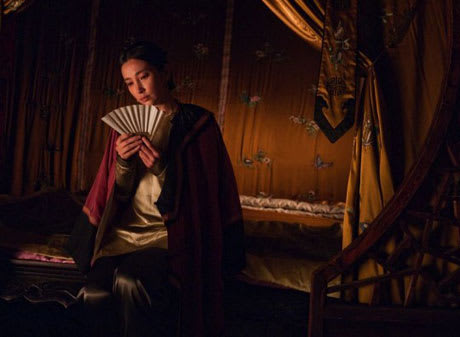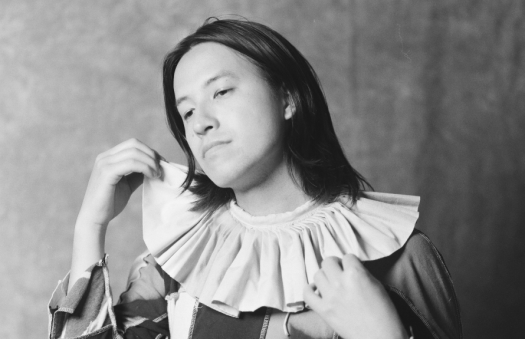Taking a cue from Karel Reisz's adaptation of The French Lieutenant's Woman, female-focused director Wayne Wang frames Lisa See's novel about female bonding in a time of repression with the modern day story of a high-powered female executive and wannabe novelist in Shanghai, suggesting that while some things have changed dramatically over time, others stay the same. And, as proven by many preceding literary adaptations, Snow Flower and the Secret Fan shows mainly that it's hard enough to contain an original text within a visual narrative, let alone a secondary story intended to contextualize relevance for modern audiences seemingly incapable of doing so on their own.
As announced in expository fashion, much like every other concept, plot hole and explanation of tradition for Western audiences, the central premise of "Lao Tong" is detailed as a contractual lifelong bond between girls seeking an alternative to arranged marriage. Yet in the case of Snow Flower (Gianna Jun) and Nina (Bingbing Li), the arrangement is more for increased marriage prospects, bringing together families from different class systems.
This past tale unfolds as an allegory for the present day where Lily (Li) is reunited with estranged Lao Tong Sophia (Jun) after the budding novelist falls into a coma. It's a fair enough device to use for the purpose of accessibility, if only it didn't dominate so much of the film with a melodramatic, clunky air of constant struggle never balanced by a calm connection.
While the implication that male rights and autonomy offered to women in a modern world still repress feminine instinct and passion through rigid core values is quite inspired, the condensed and overly forced manner in which it's depicted limits the actual effect. We're treated to an endless array of explanations and rushed conflicts aiming at moments of catharsis that never come due to the lack of basic humanity and stillness throughout.
If some of the painterly compositions of 19th Century China impress on a superficial level, their lack of focus and collective cohesion ultimately derail their relevance, which is what can be said of this tale of female bonding on the whole.
(Fox)As announced in expository fashion, much like every other concept, plot hole and explanation of tradition for Western audiences, the central premise of "Lao Tong" is detailed as a contractual lifelong bond between girls seeking an alternative to arranged marriage. Yet in the case of Snow Flower (Gianna Jun) and Nina (Bingbing Li), the arrangement is more for increased marriage prospects, bringing together families from different class systems.
This past tale unfolds as an allegory for the present day where Lily (Li) is reunited with estranged Lao Tong Sophia (Jun) after the budding novelist falls into a coma. It's a fair enough device to use for the purpose of accessibility, if only it didn't dominate so much of the film with a melodramatic, clunky air of constant struggle never balanced by a calm connection.
While the implication that male rights and autonomy offered to women in a modern world still repress feminine instinct and passion through rigid core values is quite inspired, the condensed and overly forced manner in which it's depicted limits the actual effect. We're treated to an endless array of explanations and rushed conflicts aiming at moments of catharsis that never come due to the lack of basic humanity and stillness throughout.
If some of the painterly compositions of 19th Century China impress on a superficial level, their lack of focus and collective cohesion ultimately derail their relevance, which is what can be said of this tale of female bonding on the whole.




